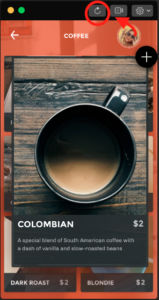This week, Kevin Yank is reporting from OSCON 2006 in Portland, OR.
Kicking off the first day of open sessions at OSCON today, Tim O’Reilly gave his perspectives on the state of open source, and some of the big ideas currently making waves:
Architectures of Participation beyond software development (Web 2.0)
As the champion of the Web 2.0 meme (and the associated conference), O’Reilly has plenty to say on the subject, and I’ve covered this before. The biggest characteristic of the Web 2.0 concept, he believes, is handing over the reins to the users, so that when your business begins to break through, your users feel like they made it happen, and become your biggest champions.
Open Source Licenses are Obsolete
Despite huge efforts from entities like Apache, developers continue to build applications that don’t fit within existing licensing models. The main example cited by O’Reilly was Ning, a site where ordinary people can clone a web application they like, make a few changes, and launch it themselves in just a few clicks. Which license do you use for that?
Asymmetric Competition
Small companies (like Craigslist) are competing with big companies (like Yahoo!). Fears that the commercial success of the web would shut out the smaller operations have not materialized, and there are still definite opportunities for individuals with bright ideas to make a big splash.
Operations As Advantage
Many of the big success stories like Google and Craigslist are tackling issues like the cost of electricity in their data centers. But how can the small players achieve these same kinds of advantages? Tim and others foresee a future where the small players’ web applications are hosted in the big players’ data centers.
Open Data
This is another one I’ve covered before. In short, innovations like Microformats are making data that was previously locked into server-side databases and exposed only in human-readable document formats, are now becoming available for applications and automated crawlers to access. These same innovations are making it easy for users to take their data out of one application and put it into another.
Other blips on the O’Reilly radar include Firefox as a platform, voice over IP (VoIP), and Ubuntu Linux.
 Kevin Yank
Kevin YankKevin Yank is an accomplished web developer, speaker, trainer and author of Build Your Own Database Driven Website Using PHP & MySQL and Co-Author of Simply JavaScript and Everything You Know About CSS is Wrong! Kevin loves to share his wealth of knowledge and it didn't stop at books, he's also the course instructor to 3 online courses in web development. Currently Kevin is the Director of Front End Engineering at Culture Amp.

